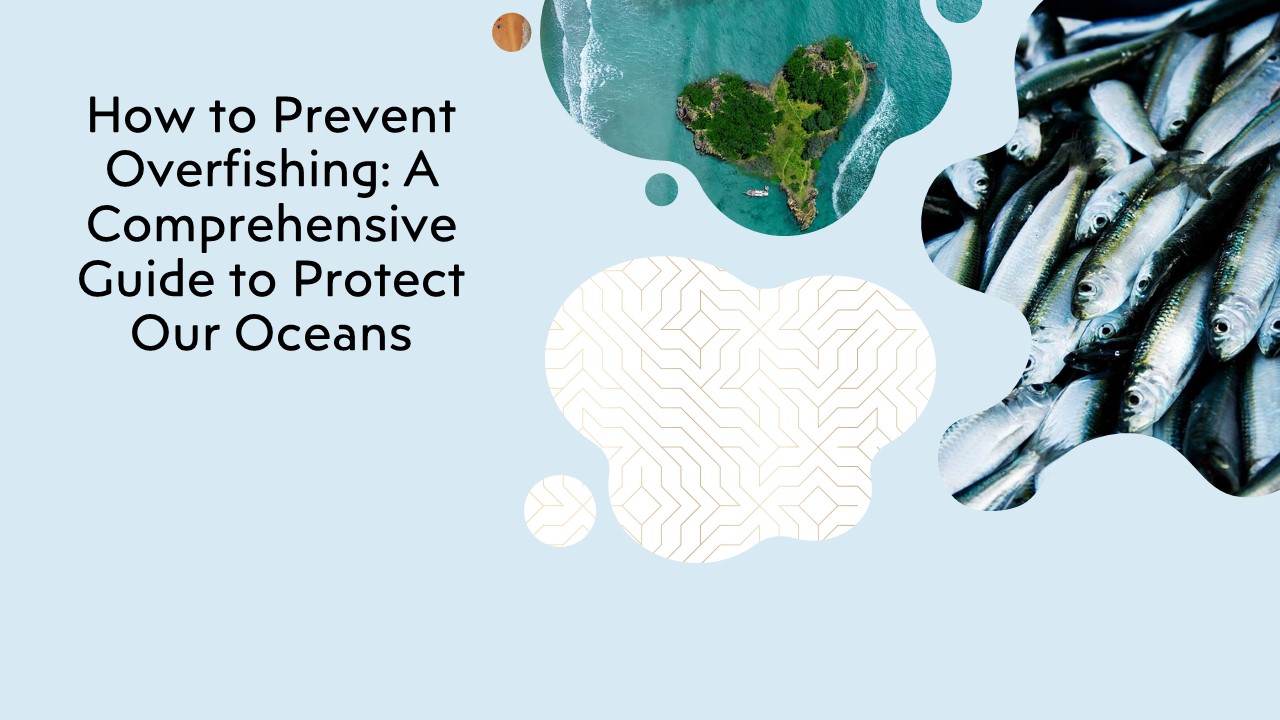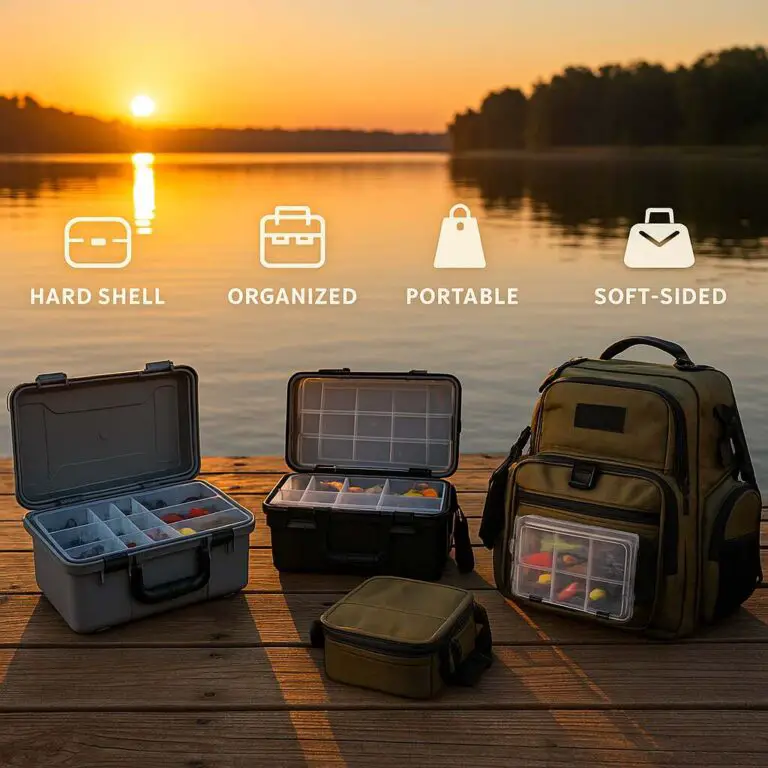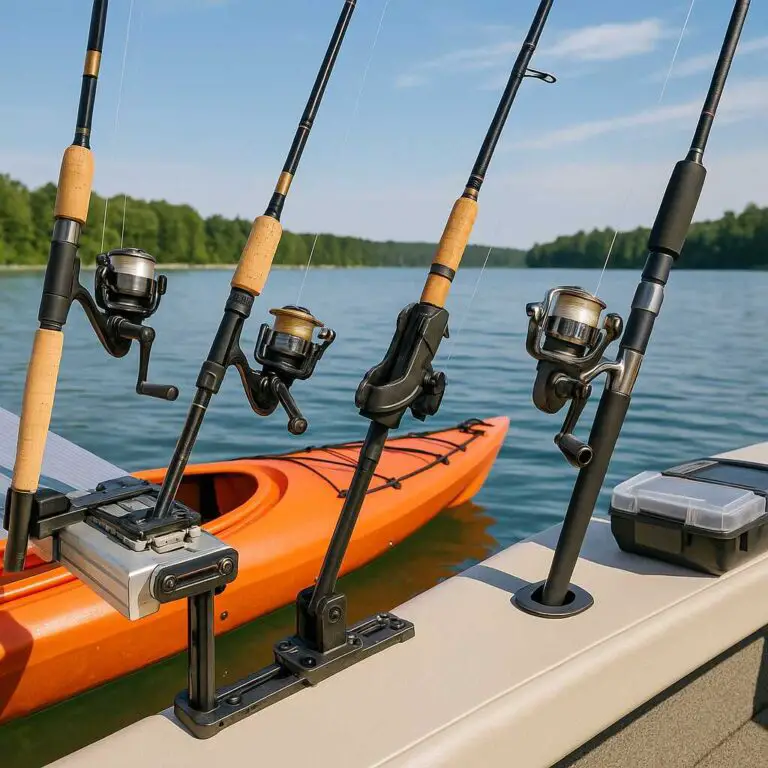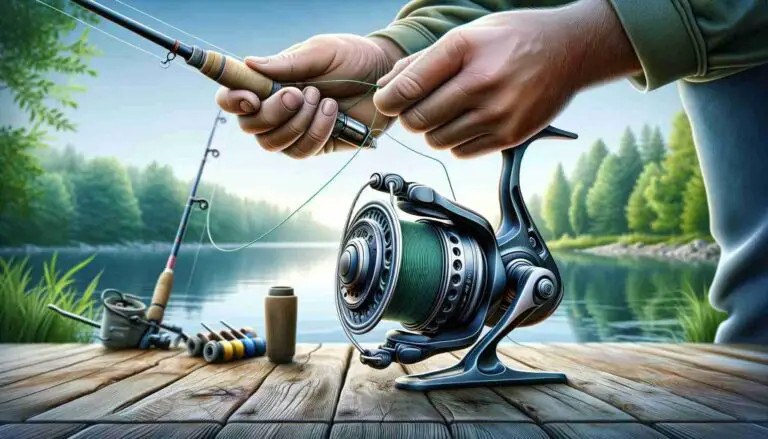Are you concerned about the alarming issue of overfishing and its devastating impact on our oceans? Join me as I explore practical strategies and tips on how to prevent overfishing, tackle this problem head-on, and ensure the long-term health of our marine ecosystems.
I’m excited to share this guide with you because the issue of overfishing is more pressing than ever before. Overfishing occurs when we extract fish from our oceans at a rate that surpasses their natural ability to reproduce. This reckless practice not only depletes fish populations but also disrupts the delicate balance of marine ecosystems. It’s time to take action and adopt sustainable fishing practices that will allow us to enjoy the bounty of the sea while preserving it for future generations.
In this comprehensive guide, I’ll dig into the nitty-gritty of overfishing, understand its consequences, and explore effective solutions. Whether you’re a seafood enthusiast, a recreational angler, or simply someone who cares about the health of our planet, this guide is for you. Together, we can make a difference and protect our oceans from the brink of collapse.
So, let’s dive in and equip ourselves with the knowledge and tools needed to prevent overfishing and ensure a sustainable future for our oceans. Let’s get started!
Understanding Overfishing
Before we can effectively address the issue of overfishing, it’s crucial to have a clear understanding of what it entails and the consequences it brings. So, let’s explore the ins and outs of overfishing together.
Overfishing occurs when we extract fish from the ocean at an unsustainable rate, surpassing their ability to reproduce and replenish their populations. This relentless pursuit of fish has led to a significant decline in global fish stocks, putting marine ecosystems and the livelihoods of millions at risk.
The consequences of overfishing are far-reaching and profound. First and foremost, it disrupts the delicate balance of marine ecosystems. Fish play a vital role in these ecosystems as predators, prey, and contributors to nutrient cycling. When fish populations decline, it has a ripple effect throughout the entire food chain, impacting other marine species and their habitats.
Moreover, overfishing has severe economic and social implications. Many coastal communities heavily rely on fishing as a source of income and sustenance. When fish populations plummet, fishermen face reduced catches and diminished incomes, leading to unemployment and economic hardships. Furthermore, the loss of fish as a food source can affect food security and nutrition in vulnerable communities worldwide.
In addition to the immediate effects, overfishing has long-term consequences. It can result in the collapse of entire fisheries, rendering them unable to recover. Once a fish population collapses, it takes years, if not decades, for it to rebound, if it ever does. This loss of biodiversity and the irreversible damage to marine habitats has a profound impact on the health and resilience of our oceans.
It’s crucial for us to recognize the urgency of addressing overfishing and take collective action to reverse its effects. By adopting sustainable fishing practices and implementing effective fisheries management strategies, we can restore the balance of our oceans and ensure the well-being of both marine ecosystems and the communities that depend on them.
In the next sections, I’ll explore the role of sustainable fishing practices, the importance of fisheries management, and practical steps we can take as individuals to prevent overfishing. Together, we can make a positive impact and safeguard the future of our oceans. Stay tuned!
The Role of Sustainable Fishing Practices
Now that you understand the detrimental effects of overfishing, let’s delve into the importance of sustainable fishing practices and how they play a vital role in preserving our oceans. Sustainable fishing is all about finding a balance between meeting our present needs for seafood and ensuring the long-term health of fish populations and marine ecosystems. So, how can we achieve this delicate balance?
- Maintaining Fish Populations: Sustainable fishing practices focus on maintaining healthy fish populations. This involves setting catch limits based on scientific research and the reproductive capacity of each species. By avoiding excessive fishing pressure, we allow fish stocks to replenish and sustain themselves over time.
- Reducing Bycatch: Bycatch refers to the unintentional capture of non-target species during fishing operations. It can include endangered marine animals, seabirds, and juvenile fish. Sustainable fishing practices employ measures to minimize bycatch, such as using selective fishing gear, modifying fishing techniques, and employing escape devices for non-target species.
- Preserving Habitats: Marine habitats, such as coral reefs, seagrass beds, and mangroves, provide critical breeding grounds and shelter for various fish species. Sustainable fishing practices aim to protect and preserve these habitats. By avoiding destructive fishing methods like bottom trawling or dynamite fishing, we can safeguard the essential ecosystems that support healthy fish populations.
- Supporting Responsible Aquaculture: Aquaculture, also known as fish farming, plays a significant role in meeting the increasing global demand for seafood. Sustainable aquaculture practices prioritize environmental stewardship, responsible feed management, and disease prevention. By supporting and promoting responsible aquaculture operations, we can reduce the pressure on wild fish stocks and contribute to sustainable seafood production.
- Embracing Technological Innovations: Advancements in technology offer new opportunities to enhance sustainable fishing practices. For instance, the use of satellite technology and real-time data can help monitor and manage fishing activities, ensuring compliance with regulations and preventing illegal, unreported, and unregulated (IUU) fishing.
By adopting and promoting sustainable fishing practices, we can achieve a win-win situation. Not only do we preserve the health and diversity of our oceans, but we also ensure the long-term viability of the fishing industry itself. Sustainable fisheries can provide stable livelihoods for fishermen, support coastal communities, and contribute to food security worldwide.
Promoting Effective Fisheries Management
Effective fisheries management is crucial for preventing overfishing and ensuring the sustainable use of our marine resources. It involves the implementation of regulations, policies, and strategies that govern fishing activities and aim to maintain the health and productivity of fish populations. Let’s explore the importance of fisheries management and the various approaches used to achieve it.
- Setting Catch Limits and Fishing Quotas: One of the primary tools of fisheries management is the establishment of catch limits and fishing quotas. These limits specify the maximum amount of fish that can be harvested within a given time frame. They are based on scientific assessments of fish populations, taking into account factors such as reproductive rates, migration patterns, and ecosystem dynamics. By setting sustainable catch limits, we can prevent overfishing and promote the recovery of depleted fish stocks.
- Implementing Size and Seasonal Restrictions: Fisheries management also includes regulations on the size of fish that can be caught and the timing of fishing seasons. By establishing size limits, which specify the minimum size at which a fish can be legally harvested, we allow fish to reach maturity and reproduce before being caught. Seasonal restrictions ensure that fishing activities are regulated during critical periods such as spawning or migration, protecting vulnerable fish populations during their most sensitive life stages.
- Establishing Protected Areas: Marine protected areas (MPAs) are designated zones where fishing activities are restricted or prohibited. MPAs serve as sanctuaries for fish species, allowing them to grow and reproduce undisturbed. These protected areas not only help replenish fish populations within their boundaries but also act as “spillover” zones, where fish can migrate and repopulate surrounding areas outside the MPAs.
- Combating Illegal, Unreported, and Unregulated (IUU) Fishing: IUU fishing undermines effective fisheries management efforts and contributes to overfishing. It involves fishing activities that operate outside the boundaries of laws and regulations, including unlicensed fishing, underreporting catches, and using prohibited fishing gear. To combat IUU fishing, countries, and international organizations collaborate to strengthen monitoring and surveillance systems, enforce penalties for illegal activities, and promote traceability in seafood supply chains.
- International Cooperation and Agreements: Overfishing is a global issue that requires international collaboration. International agreements and organizations, such as the United Nations Food and Agriculture Organization (FAO) and regional fisheries management organizations (RFMOs), work towards the conservation and sustainable management of shared fish stocks. Through these collaborations, countries establish guidelines, exchange scientific knowledge, and coordinate efforts to prevent overfishing in shared waters.
These management practices not only protect fish populations and their habitats but also support the long-term viability of the fishing industry and the livelihoods of coastal communities.
Empowering Consumers
As consumers, we have the power to drive change and contribute to the prevention of overfishing through our everyday choices. By making informed decisions about the seafood we consume, we can support sustainable fishing practices and encourage the preservation of our oceans. Here’s how you can become an empowered consumer:
- Educate Yourself: Take the time to learn about sustainable seafood and the different species that are most at risk from overfishing. Familiarize yourself with eco-labels and certifications that indicate sustainable fishing practices, such as the Marine Stewardship Council (MSC) label. Understanding the issues at hand will help you make informed choices when purchasing seafood.
- Choose Sustainable Seafood: When buying seafood, opt for species that are abundant and have been caught or farmed using sustainable practices. Look for labels or ask your fishmonger or retailer about the source and the fishing or farming methods employed. Support local, small-scale fisheries that prioritize sustainability and responsible practices.
- Know Your Seafood’s Origin: Traceability is essential when it comes to sustainable seafood. It allows you to track the journey of the fish from its source to your plate. Choose suppliers or restaurants that prioritize transparency and can provide information about the origin of the seafood they offer. This knowledge ensures that you are supporting fisheries that are managed responsibly.
- Diversify Your Choices: Consider exploring a variety of seafood options beyond the popular and overfished species. By diversifying your choices, you can help reduce the demand for heavily targeted species and create a market for lesser-known but sustainable alternatives. There are numerous delicious and sustainable seafood options out there waiting to be discovered.
- Reduce Food Waste: Food waste is not only a waste of resources but also contributes to overfishing. By minimizing food waste, you reduce the demand for more fish to be caught or farmed. Plan your meals, store food properly, and repurpose leftovers creatively. Every effort to reduce waste counts toward the overall sustainability of our food systems.
- Engage with Restaurants and Retailers: Don’t be afraid to ask questions about the sustainability of the seafood offered at restaurants or sold at retail stores. Engage with businesses and encourage them to source sustainable seafood options. Your inquiries and feedback can create awareness and drive change within the industry.
Stay tuned to discover how you can make a difference on a personal level!
Engaging in Responsible Fishing Practices
Whether you’re a recreational angler or a subsistence fisherman, there are steps you can take to ensure that your fishing activities contribute to the prevention of overfishing. By adopting responsible fishing practices, you can enjoy your time on the water while minimizing your impact on fish populations and marine ecosystems. Let’s explore some tips:
- Observe Catch-and-Release: If you’re a recreational angler, consider practicing catch-and-release whenever possible. This means releasing the fish you catch back into the water unharmed. Proper catch-and-release techniques, such as using barbless hooks, handling fish with wet hands, and minimizing the time the fish spends out of the water, increase their chances of survival after release.
- Respect Fishing Regulations: Familiarize yourself with local fishing regulations, including size limits, bag limits, and seasonal restrictions. Adhere to these rules to prevent overfishing and protect vulnerable fish populations during critical periods. Responsible fishing means being knowledgeable about and respecting the laws that govern fishing in your area.
- Use Selective Fishing Gear: Opt for fishing gear that minimizes bycatch and environmental impact. Choose gear that allows you to target specific species while avoiding the capture of non-target species. For example, using circle hooks can reduce the chances of hooking non-targeted species, and using escape panels or devices in traps or nets can allow smaller fish to escape.
- Practice Sustainable Bait Choices: Be mindful of the bait you use for fishing. Avoid using bait that comes from overfished species or species that have a crucial ecological role. Opt for sustainable bait alternatives such as artificial lures or bait made from sustainable materials. This choice can help reduce pressure on vulnerable fish populations.
- Be Mindful of Habitat and Ecosystems: Respect and protect the habitats and ecosystems where you fish. Avoid damaging sensitive areas such as seagrass beds, coral reefs, and mangroves. These habitats provide essential nursery grounds for many fish species. Anchor responsibly and be mindful of your surroundings to minimize disturbance to these fragile environments.
- Share Knowledge and Encourage Responsible Practices: Spread the word about responsible fishing practices and the importance of preventing overfishing. Engage with fellow anglers, fishing communities, and social media platforms to share information, experiences, and tips on sustainable fishing. Encourage others to adopt responsible practices and be stewards of our marine resources.
Remember, the choices you make as an individual angler have a collective impact on the overall sustainability of our oceans.
Supporting Conservation Organizations
Conservation organizations play a vital role in protecting marine ecosystems and combating the issue of overfishing. By supporting these organizations, you can contribute to their efforts and help create a sustainable future for our oceans. Here’s how you can get involved:
- Research and Identify Reputable Organizations: Take the time to research and identify reputable conservation organizations that focus on marine conservation and the prevention of overfishing. Look for organizations that have a track record of impactful work, transparent operations, and a commitment to sustainable practices. Some well-known organizations include Oceana, World Wildlife Fund (WWF), and the Ocean Conservancy.
- Donate: Financial contributions are essential for conservation organizations to carry out their work effectively. Consider making a one-time or recurring donation to support their initiatives. Even a small contribution can make a difference when combined with others. Look for options to donate online through the organization’s website or participate in fundraising campaigns.
- Volunteer: Many conservation organizations offer volunteer opportunities both on-site and remotely. Whether it’s assisting with research projects, participating in beach cleanups, or providing administrative support, your time and skills can contribute to their mission. Check their websites or contact them directly to inquire about volunteer opportunities.
- Attend Events and Workshops: Stay updated on events, workshops, and conferences organized by conservation organizations. These events provide opportunities to learn from experts, engage in discussions, and network with like-minded individuals. Attend webinars, seminars, and workshops to expand your knowledge and stay informed about the latest developments in marine conservation.
- Advocate and Raise Awareness: Be an advocate for sustainable fishing practices and the protection of our oceans. Use your voice to raise awareness among friends, family, and your community about the importance of preventing overfishing. Share information, articles, and social media content from reputable sources to educate others and inspire action.
- Participate in Citizen Science Projects: Some organizations conduct citizen science projects that allow individuals to contribute data and information about marine ecosystems and fish populations. By participating in these projects, you can help researchers gather valuable data and gain insights into the health of our oceans. Look for citizen science initiatives that align with your interests and expertise.
Collective action is key to addressing the challenges of overfishing and protecting our oceans.
Raising Awareness and Advocacy
Raising awareness and engaging in advocacy are powerful ways to make a difference in preventing overfishing. By amplifying the issue and advocating for sustainable fishing practices, you can inspire others to take action and contribute to the protection of our oceans. Here’s how you can be an effective advocate:
- Educate Yourself: Continuously educate yourself about overfishing, its consequences, and sustainable fishing practices. Stay updated on the latest research, news, and developments in marine conservation. This knowledge will empower you to speak confidently and provide accurate information when raising awareness.
- Use Social Media: Social media platforms provide a vast reach and an effective way to spread awareness about overfishing. Share informative articles, infographics, and personal stories related to sustainable fishing practices. Use relevant hashtags and tag organizations working in marine conservation to maximize visibility. Encourage your followers to take action and share the information further.
- Engage in Conversations: Engage in conversations about overfishing and sustainable fishing practices with friends, family, colleagues, and community members. Share your knowledge and experiences, and listen to their perspectives. Respectful and open dialogues can foster understanding and encourage others to take an interest in the issue.
- Write Letters and Petitions: Write letters or emails to policymakers, government representatives, and seafood retailers urging them to prioritize sustainable fishing practices. Use your voice to advocate for stricter regulations, the enforcement of existing laws, and the promotion of responsible seafood sourcing. Sign and promote petitions that call for action against overfishing and support sustainable fishing initiatives.
- Support Policy Change: Stay informed about relevant policies and legislative actions related to fisheries management and marine conservation. Support organizations and campaigns that advocate for stronger policies, better enforcement, and international cooperation to address overfishing. Contact your local representatives and express your concerns and support for sustainable fishing practices.
- Engage with Local Communities: Connect with local fishing communities, organizations, and seafood markets to understand their challenges and perspectives. Collaborate with them to find common ground and work together to promote sustainable fishing practices. Support local sustainable fisheries and initiatives that empower local communities while protecting fish populations.
- Participate in Awareness Events: Participate in events such as World Oceans Day, Fishermen’s Forums, or coastal cleanups. These events provide opportunities to meet like-minded individuals, share knowledge, and raise awareness about overfishing. Collaborate with organizations, schools, or community groups to organize educational workshops or seminars.
Remember, every action, no matter how small, contributes to the collective effort in preventing overfishing.
Conclusion
In conclusion, to prevent overfishing, a comprehensive approach is needed. This includes implementing and enforcing catch limits and fishing quotas, promoting sustainable fishing practices, protecting habitats and vulnerable species, supporting effective fisheries management, engaging in responsible consumer choices, raising awareness, and advocating for stronger policies.
By understanding the impact of overfishing and adopting sustainable fishing practices, we can ensure the long-term health of our oceans. Whether you’re a consumer making informed seafood choices, a responsible angler, or an advocate for marine conservation, your actions matter. Together, we can make a positive impact on fish populations, marine ecosystems, and the livelihoods of coastal communities.
Remember, our oceans are interconnected, and the choices we make today will determine their future. Let’s continue to educate ourselves, collaborate with others, and strive for sustainable solutions. Together, we can preserve the beauty, abundance, and diversity of our oceans for generations to come.
Thank you for joining me on this important journey toward preventing overfishing and protecting our precious marine ecosystems. Now, it’s time to take what we’ve learned and put it into action. Together, let’s be stewards of our oceans and make a positive impact on the world around us!
Read my latest article: Does Wind Really Affect Fishing? Unlocking Wind’s Fishing Secrets








